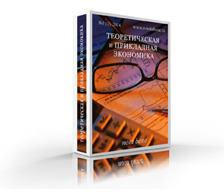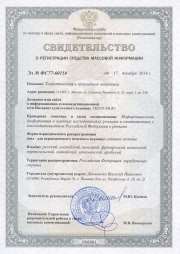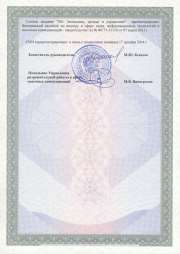MAIN PAGE
> Journal "Theoretical and Applied Economics"
> Contents of Issue № 02/2016
Contents of Issue № 02/2016
|
Economic theory and history of economic thought |
|
Antipov D.A. - Neoliberalism: Global Ideology
|
|
pp. 1-13
|
DOI: 10.7256/2409-8647.2016.2.17547
Abstract: The subject of the research is the neo-liberal model of development as a global ideology. The aim of this work is to determine the ideological principles of neoliberalism implemented in practice in the process of globalization. To achieve these objectives, the author of the article has considered a practical application of the ideas of neo-liberalism in the domestic politics of Greece, Chile and Argentina in the second half of the twentieth century. This approach allows to identify the basic elements of neoliberalism as a social practice at the country level, and to transfer the result to the global level, thereby defining the ideological components of neoliberal globalization. As a result of the study, it was found out that the practical application of the ideas of the neoliberal model in the domestic politics of Greece, Chile and Argentina allowed the supporters and theorists of neoliberalism to talk about its "viability" and "efficiency" without taking into account all the socio-economic consequences of such practices. Often when assessing the effectiveness of the neoliberal economy researchers took into account only undifferentiated GDP which allowed to hide the negative consequences of the practical application of that theory. In turn, the global transformation that occurred in the world at the turn of the XX-XXI centuries (the collapse of the bipolar system and the crisis of the "built socialism"), has allowed neo-liberalism to establish the leading role of the doctrine in the globalization process. Neoliberalism has become a global ideology, ideologeme, the main of which is the "free market" protected from any interference by the state. The idea of non-interference of the state has overcome the boundaries of economics and has spread to all spheres of social existence that allowed neoliberalism to be "the only effective" model of human existence. The consolidation of the status of neo-liberalism as a universal ideology has not led to the withdrawal of the global contradictions of the global development, but only contributed to their deepening because of the lack of variability in the choice of ways of human development.

|
Production branches and markets economics |
|
Chernyshev A.I. - Metallurgical Industry of Russia's Economy: Modern Problems and Prospects
|
|
pp. 14-19
|
DOI: 10.7256/2409-8647.2016.2.16557
Abstract: In his article Chernyshev examines the current problems and prospects for the development of branches of the metallurgical sector in Russia. As it is known, the development of modern economy follows the path of the formation of cross-industry network - tightly interconnected industries, with the overall result of production and economic relations developed. Metallurgical industry is one of such industries. The industry has huge economic significance and belongs to the basic and strategically important industries. The role of metallurgy in the territorial organization of the economy is crucial. When writing the article the author used the following methods of research: observation, comparison, analysis, generalization, systematization, and classification. Analyzing the development of the metallurgical industry in Russia, the author makes a conclusion that the industry has almost completely overcome the effects of the financial crisis, restored cooperation ties and production potential. Some branches of the metallurgical industry especially non-ferrous metallurgy managed not only to reach the pre-crisis production volumes, but to exceed them.

|
Nesterenko I. - Modern Problems of State Strategical Planning of the Construction Industry Development
|
|
pp. 20-26
|
DOI: 10.7256/2409-8647.2016.2.18156
Abstract: In this research Nesterenko touches upon the problems of the state strategic planning, in particular developments of the construction sphere, under the conditions of the escalating economic crisis. The object of the research is the system of state strategic planning in the Russian Federation. A subject – are processes of development and updating of documents of the state strategic planning in the construction sphere. The author has in details considered the main problems constraining development of the state strategic planning in the country that is especially actual under the conditions of crisis manifestations in the national economy. Special emphasis is put on studying modern positions of the state, business and science concerning development and implementation of documents of the state strategic planning as well as efficiency evaluation of the existing system of state planning in the country. Methodical and methodological basis of the research includes the analysis of data of Rosstat including assessment of dynamics of the index of entrepreneurial confidence in construction, synthesis of estimates of representatives of the state, business and science concerning development and implementation of documents of the state strategic planning, and also instruments of scenario planning and forecasting that has allowed to draw, within the system approach to management, a number of conclusions and to develop recommendations about enhancement of documents of strategic planning in the construction sphere. The novelty of the research is caused by the fact that the author defines endemic problems of formation and development of the state strategic planning in the country, mainly in the sphere of construction that is especially actual in case of implementation of the requirements set by the Federal Law of the Russian Federation dated June 28, 2014 No. 172-FZ "About strategic planning in the Russian Federation" and the Federal Law dated November 12, 2014 No. 488-FZ "About industrial policy in the Russian Federation".

|
Rasskazova A.V. - Innovation-Driven Economic Development and Assessment of Enterprises' Innovative Capacity
|
|
pp. 27-37
|
DOI: 10.7256/2409-8647.2016.2.17788
Abstract: The object of the research is the innovatve development of Russia and assessment of innovative capacity of domestic companies. Set of the program documents describing the main objectives and directions of innovative development at the macro and micro levels acts as the subject of the present research. The author in detail considers theoretical approaches to interpretation of innovation, innovative capacity, innovative capacity assessment inventory, and legal and regulatory framework (first of all, state programs in the sphere of innovative development), development programs and financial reports provided by OAO (JSC) RZD (Russian Railways). Special attention is paid to the implementation of "The Strategy of Innovative Development of the Russian Federation 2020" and assessment of innovative capacity of JSC RZD. The theoretical and methodological basis of this research is constituted by the complex analysis and systems approach to studying primary sources as well as methodological developments of Russian scientists and specialists. The main conclusions of research are offers and recommendations made on the basis of the analysis of innovative development programs which should contribute to the improvement of the economic situation at the macro and micro level. Based on the analysis of statistical data the results of the implementation of the first stage of "The Strategy of Innovative Development of the Russian Federation 2020" are also presented. The novelty of the research is caused by the fact that the author carries out an in-depth study of innovative development: at the level of the state and at the level of private enterprises.

|
Kotov N.M. - Directions for Improving Competitiveness of Regional Fisheries Industries of the Far East (Based on the Example of the Magadan Region)
|
|
pp. 38-47
|
DOI: 10.7256/2409-8647.2016.2.17912
Abstract: The subject of research is the problem of increase of competitiveness of fishery complexes of Far East regions which is considered on the example of the Magadan region. In modern conditions of uncertainty it is important to determine the possible directions of the state measures for enhancement of management of a regional fishery complex for the purpose of increase of level of its competitiveness. The assessment of competitive advantages of a fishery complex of the Magadan region has allowed to reveal the key directions of its increase within enhancement of public administration by a fish industry of the Magadan region. The main results of research are applicable to all Far East regions. Method, research methodology. A methodological and theoretical basis of research are works of the Russian scientists concerning development of fishing activities and competitiveness of an industry. The main methods of research are system approach, the analysis and synthesis, the comparative analysis, the analysis of statistical data, an expert method. Novelty of research, conclusions. For the purpose of identification a determinant of competitive advantage of a regional fishery complex the economic model of research of competitive advantages of M. Porter has been adapted. The assessment of competitiveness of a regional fishery complex on the example of the Magadan region by ranging of absolute and relative measures of various industries on the main determinants of competitive advantages is offered and given.

|
Neustroeva A.B. - Risks on the Labor Market in the Arctic Region of the Russian Federation
|
|
pp. 48-58
|
DOI: 10.7256/2409-8647.2016.2.17935
Abstract: The subject of the research is the risks that exist on the labor market in the Arctic districts of the Republic of Sakha (Yakutia). The author of the article examines such objective risk-contributing factors of the developing economy and social labor sphere of the Arctic Region as hazardous environmental conditions, vast territory, strong dependence of the population on the state policy aimed at industrial and economic development of the North, instability and disparity in the regional employment pattern, underdevelopment of the engineering, social and transport infrastructure. Special attention is paid to the analysis of unemployment risks, low wages, informal employment, labor migration and professional risks. The author also analyzes how the population perceives these risks on the labor market. The labor market risks are analyzed by the author based on the statistical data, results of the survey conducted in the Republic of Sakha (Yakutia) regarding the employment and unemployment issues, and results of the expert survey that involved leadership and labor protection specialists of the enterprises and organisations in the Republic of Sakha (Yakutia). The main conclusion of the research is that current risks and constraints on the labor market in the Arctic districts of the Republic of Sakha (Yakutia) are only growing under the conditions of the financial crisis which requires serious governmental decisions to preserve and keep labor forces in the Far North, to create favorable conditions and increase the life quality of the local population. Based on the analysis of survey results, the author defines particular features of the perception of labor market risks by the population of the Arctic districts of Yakutia.

|
Degtyarev A.N., Malikov R.I., Grishin K.E. - Transaction Costs in Terms of Institutional Configuration of the Regional Business Environment
|
|
pp. 59-69
|
DOI: 10.7256/2409-8647.2016.2.19043
Abstract: The subject of the present research article is the theoretical questions of occurrence of transaction costs in the business environment and their impact on business efficiency. It is proved that the transaction costs are an important indicator of the effectiveness of the business environment. It is also proved that the volume of internal (incompany) transaction costs and transaction costs of the market interaction of entrepreneurs may vary due to the nature of the impact of non-market regulatory mechanisms (primarily government regulatory system). It is proposed to assess the level of transaction costs of businesses depending on the institutional structure of the business environment within the parameters of the administrative regulation of business. The authors put forward the research hypothesis that the real (actual) level of the transaction costs of the market interaction of a business entity is defined by the institutional configuration of the regional business environment. It is determined that the administrative regulatory regime in respect of a particular business entity and accordingly, the potential level of transaction costs, and the ability to manage them are determined by the parameters of the main contract with the state. The conclusion is that the key objective of management of regional economic development under modern conditions should be the design and construction of the institutional configuration of the regional business environment which, among other things, would help to reduce transaction costs in the process of implementation of business activity. The study is based on the methodological approach to the design of the system of interaction of imperious and enterprise structures on the basis of formation of the institutional matrix of the business environment. The novelty of the research is caused by the fact that the authors develop theoretical and methodological approaches to the design and construction of the institutional configuration of the regional business environment which, among other things, would help to reduce transaction costs in the process of implementation of business activities and to make rational management decisions that would contribute to the formation of favorable conditions for the enterpreneurial development.

|






